Your Jeep may shake when idle or stopped due to issues with the engine mounts, spark plugs, or fuel system. These problems can cause uneven idling and lead to the shaking sensation.
Driving a Jeep can be an enjoyable experience, but some owners may encounter a common issue: their vehicle shaking when idle or stopped. This can be a worrisome problem, but understanding the potential causes can help address the issue effectively.
There are several reasons why a Jeep may shake when not in motion, including engine mount problems, malfunctioning spark plugs, or issues with the fuel system. By identifying and addressing these issues, Jeep owners can ensure a smoother and more enjoyable driving experience. We will explore the possible causes of a shaking Jeep when idle or stopped and offer solutions to resolve these issues effectively.
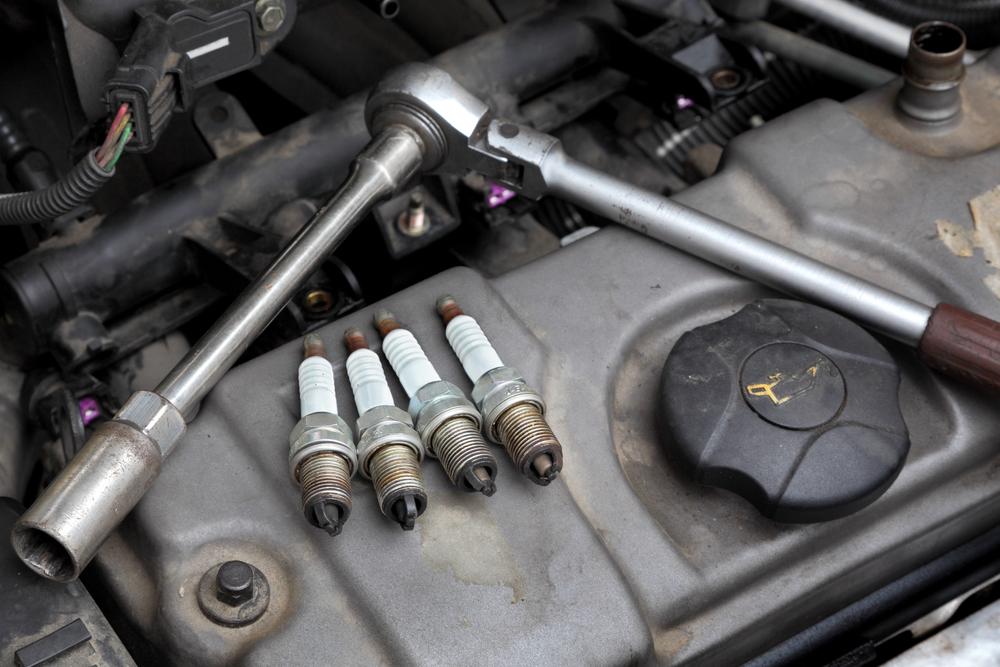
Credit: carfromjapan.com
Common Causes Of Jeep Shaking When Idle Or Stopped
A. Engine Issues
Jeep shaking when idle or stopped can be caused by various engine issues. Common causes include faulty spark plugs, dirty fuel injectors, or a malfunctioning idle control valve. It is essential to address these problems promptly to prevent further damage to your vehicle.
1. Dirty Or Worn Spark Plugs
When it comes to engine issues that can cause your Jeep to shake when idle or stopped, one common culprit is dirty or worn spark plugs. Spark plugs play a vital role in igniting the air-fuel mixture in the combustion chamber of your engine. Over time, spark plugs can become caked with dirt and debris, leading to poor ignition and engine misfires.
Similarly, if the spark plugs are worn out or damaged, they may not create a strong enough spark to efficiently burn the fuel. This can result in rough idling and a noticeable shaking sensation.
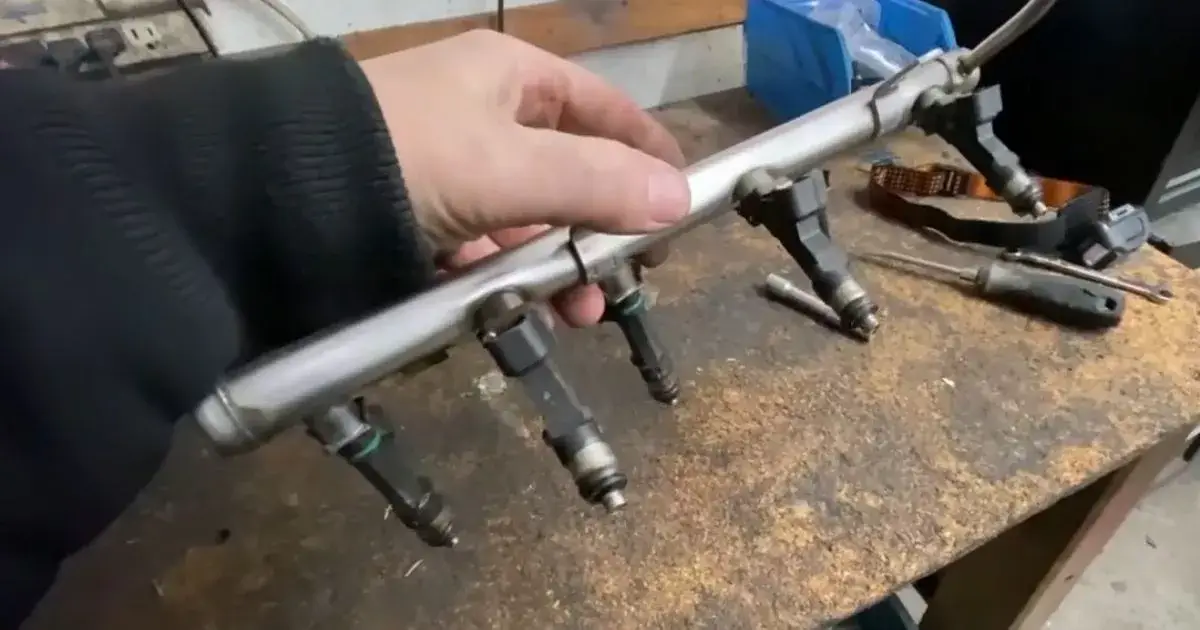
2. Clogged Fuel Injectors
Another potential cause of engine-related shaking in your Jeep is clogged fuel injectors. Fuel injectors are responsible for delivering precise amounts of fuel into the combustion chamber.
However, over time, they can get clogged with dirt, varnish, or carbon deposits. When this happens, the fuel flow is disrupted, leading to an improper air-fuel mixture and engine misfires. These misfires can cause noticeable shaking when your Jeep is at idle or stopped.
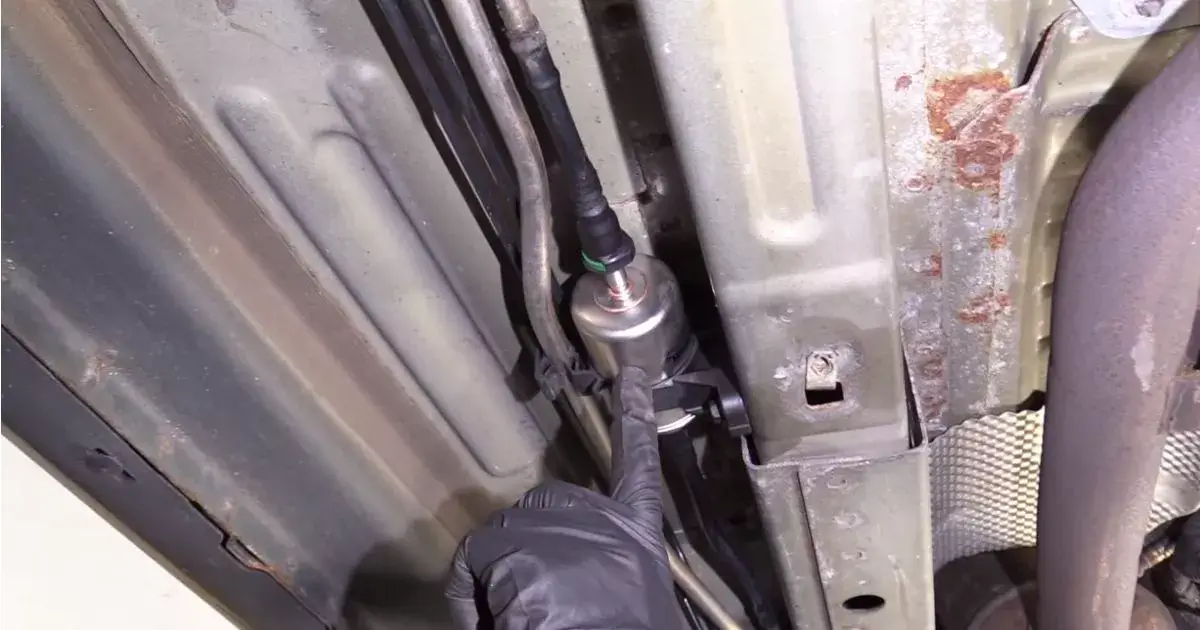
3. Dirty Or Faulty Fuel Filter
A dirty or faulty fuel filter can also contribute to engine-related shaking in your Jeep. The fuel filter is responsible for removing impurities from the fuel before it enters the engine. However, over time, it can become clogged with dirt and debris, restricting the fuel flow.
When this happens, the engine may not be receiving an adequate amount of fuel, leading to rough idling and shaking. Additionally, a faulty fuel filter can allow contaminants to reach the engine, further contributing to engine issues.
4. Faulty Ignition Coils
Faulty ignition coils can also cause your Jeep to shake when idle or stopped. Ignition coils are responsible for converting the low voltage from the battery into the high voltage needed to create a spark.
When the ignition coil is faulty, it may not be able to generate a strong and consistent spark, resulting in engine misfires and shaking. Ignition coil issues can often be identified through diagnostic trouble codes (DTCs) generated by your Jeep’s onboard computer system.
5. Worn Spark Plug Wires
Worn or damaged spark plug wires can also contribute to engine-related shaking. Spark plug wires transmit the high voltage from the ignition coil to the spark plugs. Over time, these wires can become worn or cracked, leading to a loss of electrical conductivity.
As a result, the spark plugs may not receive a sufficient spark, causing engine misfires and vibrations. Regular inspection and replacement of worn spark plug wires can help maintain smooth engine operation.
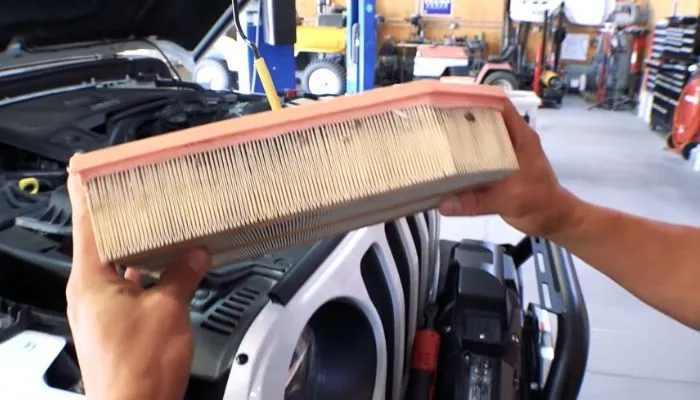
6. Dirty Air Filter
A dirty air filter can impact engine performance and contribute to shaking when your Jeep is idle or stopped. The air filter is responsible for filtering out dust, dirt, and other particles from the incoming air.
When the air filter becomes clogged with debris, it restricts the airflow to the engine, causing an imbalance in the air-fuel mixture. This imbalance can lead to engine misfires, rough idling, and shaking. Regularly replacing your air filter can help ensure proper engine airflow and prevent these issues.
7. Vacuum Leaks
Vacuum leaks can be another underlying cause of engine shaking when your Jeep is idle or stopped. Your engine relies on a vacuum system to maintain various functions, such as controlling the air-fuel mixture, operating certain components, and ensuring proper combustion.
When there is a leak in the vacuum system, it can disrupt these functions and lead to engine misfires and vibrations. Common signs of a vacuum leak include a rough idle, a hissing sound, and a check engine light.
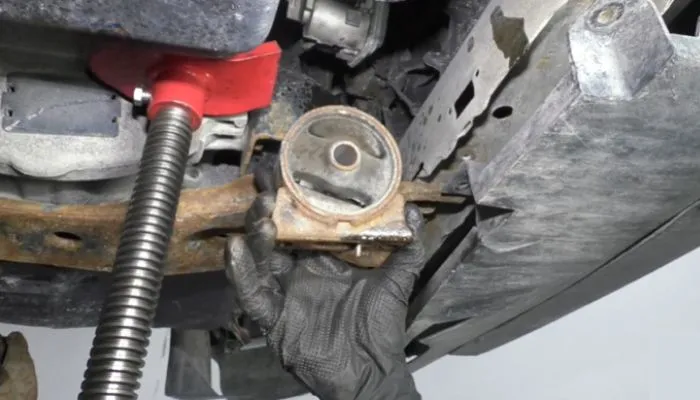
8. Worn Or Damaged Mounts
Lastly, worn or damaged engine mounts can also contribute to shaking when your Jeep is at idle or stopped. Engine mounts are designed to support and stabilize the engine within the vehicle. Over time, these mounts can deteriorate or break, causing the engine to vibrate excessively.
This vibration can be felt throughout the vehicle, especially at a standstill. If you suspect issues with your engine mounts, it is essential to have them inspected and replaced if necessary to prevent further damage to your Jeep’s engine and drivetrain.
Also Read: Why Does My Jeep Shake When I Hit a Bump

Credit: m.youtube.com
B. Drive Train Issues
If you own a Jeep and have noticed that it shakes when idle or stopped, there could be several reasons behind this unsettling phenomenon. One of the most common causes is related to drive train issues.
The drive train is responsible for transmitting power from the engine to the wheels, and any problems within this system can result in vibrations and shaking. Let’s take a closer look at two common drive train issues that can cause your Jeep to shake when idle or stopped:
1. Imbalanced Or Damaged Driveshaft
The driveshaft is a crucial component of the drive train that connects the transmission to the rear differential. Over time, the driveshaft can become imbalanced or damaged, leading to vibrations and shaking when your Jeep is idle or stopped. Imbalance can occur due to wear and tear, or if any of the weights attached to the driveshaft become loose or detached.
Similarly, physical damage to the driveshaft, such as dents or bends, can also cause significant shaking. If you suspect an imbalanced or damaged driveshaft, it’s essential to have it inspected and repaired by a qualified mechanic.
2. Worn Or Damaged Cv Joints
CV joints, also known as constant velocity joints, are an essential part of the drive train that allows for smooth and flexible movement of the wheels. These joints are exposed to constant stress and can wear out over time. When CV joints become worn or damaged, they can cause your Jeep to shake when idle or stopped.
Signs of worn or damaged CV joints include clicking or popping noises during turns, grease leakage, and vibrations while driving. If you suspect an issue with your CV joints, it’s crucial to have them checked by a professional and replaced if necessary to prevent further damage to your Jeep’s drive train.
Also Read: Why Does My Jeep Patriot Shake
C. Other Issues
When your Jeep shakes when idle or stopped, it can be a disconcerting experience. Various factors can cause this issue, and it’s essential to identify and address the root cause to ensure a smooth driving experience. In addition to tire imbalance and loose lug nuts, other potential issues can lead to your Jeep shaking when idle or stopped.
1. Tire Imbalance
A common cause of shaking when idle or stopped is Jeep’s tire imbalance. When the tires are not balanced properly, it can result in uneven weight distribution, leading to vibrations and shaking. This can be particularly noticeable when the vehicle is at a standstill.
2. Loose Lug Nuts
Another potential cause of shaking in your Jeep is loose lug nuts. If the lug nuts holding the wheels in place are not adequately tightened, it can create instability and cause the vehicle to vibrate when idling or stopped. It’s crucial to regularly check and tighten the lug nuts to prevent this issue.
Also Read: Why is My Jeep Grand Cherokee Shaking

Credit: www.wikihow.com
Troubleshooting And Potential Solutions
If your Jeep shakes when idle or stopped, it can be an unsettling and frustrating experience. Identifying the cause of the shaking and finding a solution can help you regain confidence in your vehicle’s performance. Here are some steps for troubleshooting and potential solutions to address the issue:
1. Observe The Shaking
When your Jeep is shaking, take note of the frequency, intensity, and any accompanying vibrations. Understanding these details can help narrow down the potential causes and inform your discussions with a mechanic.
2. Listen For Unusual Sounds
Listen carefully for any unusual sounds that accompany the shaking, such as rattling, clunking, or squeaking. These sounds can provide valuable clues about the underlying issue, helping to pinpoint the root cause more accurately.
3. Check For Warning Lights
Pay close attention to your dashboard for any warning lights that may illuminate when the shaking occurs. These lights can indicate specific problems that need attention, providing valuable information for diagnostic purposes.
4. Perform A Visual Inspection
Take the time to visually inspect your Jeep’s engine, exhaust system, and other components for signs of damage, wear, or loose connections. A thorough visual inspection can reveal visible issues that contribute to the shaking problem.
Seeking Professional Help
While it’s natural to investigate and troubleshoot the reasons behind your Jeep shaking when idle or stopped, sometimes the issue can be complex and require the expertise of a professional mechanic.
Consulting a mechanic is crucial to properly identify and resolve the underlying problem causing your Jeep to shake. Let’s explore why seeking professional help is essential and what you can expect during the process.
1. Consulting A Mechanic
When your Jeep shakes while idling or stopped, it’s best to consult a trusted mechanic who specializes in Jeep vehicles. A knowledgeable mechanic can efficiently diagnose and repair the issue, ensuring your Jeep runs smoothly again. Here’s what you can do when seeking professional assistance:
2. Diagnostic Testing
During your visit to the mechanic, they will likely conduct various diagnostic tests to pinpoint the exact cause of the shaking. These tests may include:
- Scanning the Engine Control Unit (ECU) for any stored error codes
- Performing a visual inspection of the engine components and related systems
- Conducting a thorough examination of the ignition system, fuel system, and exhaust system
- Checking the engine mounts and transmission mounts for any signs of wear or damage
By conducting these diagnostic tests, a mechanic can gather valuable information about your Jeep’s condition. This information will help them identify the specific problem causing the shaking and determine the most appropriate course of action.
Once the mechanic has identified the root cause, they will discuss the issue with you in detail. They will explain the necessary repairs or replacements that need to be done, along with the estimated cost and timeframe for the repairs.
Maintenance And Prevention Measures
If your Jeep shakes when idle or stopped, taking proactive maintenance and prevention measures is crucial to address this issue. Regular vehicle inspections, scheduled maintenance, prompt repairs of identified issues, and proper driving habits and vehicle care are essential to prevent and resolve the shaking problem.
1. Regular Vehicle Inspections
A routine inspection of your Jeep is vital to identify any potential causes for the shaking problem. During an inspection, the following areas should be thoroughly checked:
- Engine components
- Transmission system
- Ignition system
- Exhaust system
- Drivetrain
- Suspension system
Regular inspections enable early detection of issues that may lead to shaking, ensuring swift intervention to prevent further damage.
2. Scheduled Maintenance
Scheduled maintenance plays a significant role in identifying and addressing potential causes of shaking when your Jeep is idle or stopped. Manufacturers provide maintenance schedules, including recommended intervals for services such as oil changes, filter replacements, and fluid checks. Adhering to these schedules helps keep your Jeep running smoothly, minimizing the chances of shaking.
3. Prompt Repairs Of Identified Issues
If an inspection or scheduled maintenance reveals any issues contributing to the shaking problem, prompt repairs are necessary to prevent further damage and ensure optimal performance. Ignoring these issues can lead to more extensive and expensive repairs down the line. Seek professional assistance to accurately diagnose and fix the underlying problems causing the shaking.
4. Driving Habits And Vehicle Care
Driving habits and proper vehicle care significantly influence the overall performance of your Jeep and can help prevent shaking. Here are some driving habits and care tips to keep in mind:
- Follow the recommended Jeep maintenance guidelines
- Avoid excessive idling for prolonged periods
- Use high-quality fuel and maintain proper tire pressure
- Warm up your Jeep before driving in colder weather to allow fluids to circulate adequately
- Avoid abrupt starts and stops to reduce stress on the engine and suspension system
By practicing these habits and taking the time to care for your Jeep, you can reduce the likelihood of experiencing shaking when your vehicle is idle or stopped.
Wrapping Up
It is important to address the issue of your Jeep shaking when idle or stopped. By understanding the potential causes such as engine misfire, faulty spark plugs, or worn-out engine mounts, you can take the necessary steps to rectify the problem.
Whether it requires a simple tune-up or a more extensive repair, it’s essential to consult a professional to ensure the long-term performance and safety of your Jeep. Keep your vehicle running smoothly and enjoy a comfortable ride every time.
FAQs
Why Is My Jeep Shaking When Idling?
Your Jeep may shake when idling due to dirty fuel injectors, vacuum leaks, or engine misfires. Damaged spark plugs or ignition coils can also cause shaking. Regular maintenance and troubleshooting can help identify and resolve the issue.
Why Does My Car Shake When I Stop Or Idle?
Your car may shake when idle due to issues with spark plugs, fuel systems, or engine mounts. These issues disrupt the smooth operation, causing vibrations. Schedule a check-up with a mechanic to identify and resolve the problem.
Why Does My Jeep Shake When I’m Stopped?
A Jeep may shake when stopped due to engine misfires, worn-out spark plugs, or a faulty idle control valve. These issues can disrupt the smooth running of the engine at idle, causing vibrations. It’s important to have your Jeep inspected by a qualified mechanic to identify and resolve the underlying problem.
Why Is My Jeep Idling Rough?
A rough idle in your Jeep may be due to various reasons, such as a dirty or faulty fuel injector, spark plug issues, vacuum leaks, or a problem with the ignition system. It is important to have it diagnosed and fixed by a qualified mechanic to prevent further damage.

